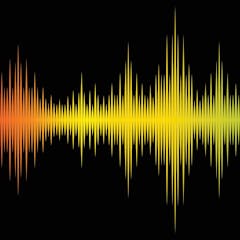
Articles on Machine learning
Displaying 1 - 20 of 298 articles

Trees are better at designing habitat than we are. Can we use machine learning to get some tips?

Coral reefs share genetic material across wide areas, with help from ocean currents. This ability is especially important during episodes like the mass bleaching currently occurring.

Police efforts to sort through online child sexual exploitation material are being hampered by the rise in AI-generated imagery. Here’s how they’re working to combat the problem.

Satellite data shows the amount of food the residents of the tiny Pacific island have grown over time, pointing to a small but stable population.

AI has learned the ins and outs of proteins. Gene editing gives scientists control of life’s molecular machinery. Together they could lead to a revolution in biotechnology.

AIs that can see and hear have captured the public imagination. A machine learning expert explains why the sense of smell has lagged behind – and why that could change.

A data privacy expert explains how machine learning algorithms draw inferences and how that leads to privacy concerns.

Scientists are discovering viral genetic sequences in the wild faster than they can analyze them. A kind of ChatGPT for proteins can help make sense of all that data.

Just as human biases show up in machine learning systems, so, too, do people’s vagaries and vicissitudes.

Human staff accumulate data as ‘expertise’ instead of giving it to their employers. For profit-chasing retailers, that’s a problem AI can eliminate.

‘Uncanny’ AI music generators blur the line between creators and consumers. Will they turn music from high art to an everyday language? Listen to these AI-generated tracks and judge for yourself.

A recent study of the car loans sector showed that a machine learning algorithm could make decisions that were 34% more profitable than salespeople in dealerships.

The age of AI warfare has arrived – and it’s not looking good.

Food fraud costs billions globally. But blockchain and machine learning offer hope for a more transparent and safer food system.

As New Zealand readies itself for AI-assisted medical treatment targeted to individuals, officials need to ensure the benefits outweigh the risks.

A new AI system may improve soccer tactics in 90% of corner kicks – but is it ready for the big leagues?

However exciting the technological developments may be, the task of reading and analyzing the Greek and Latin texts recovered from the papyri will fall to human beings.

The toll on wildlife from illegal fishing, bycatch and entanglement in fishing gear is likely underestimated, because it doesn’t account for ‘dark’ fishing vessels, a new study finds.

Enthusiasm for the capabilities of artificial intelligence – and claims for the approach of humanlike prowess –has followed a boom-and-bust cycle since the middle of the 20th century.

Existing AI systems learn patterns from very large piles of data – but they have no insight.





